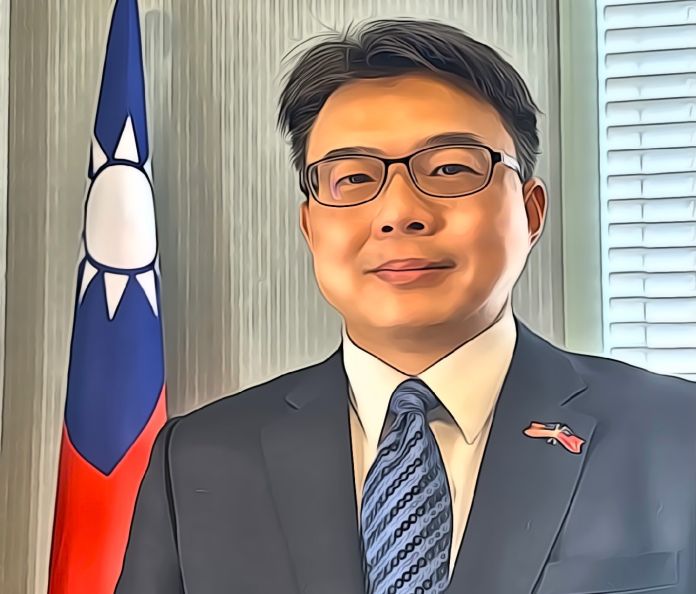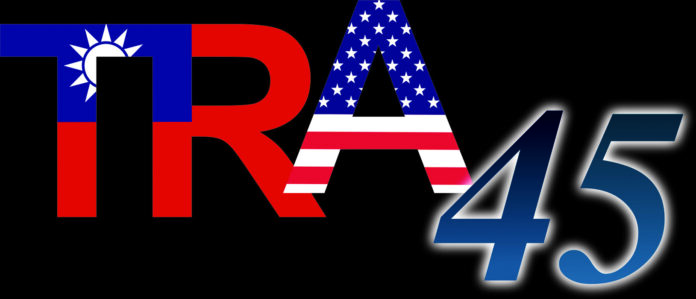By Caribbean News Global ![]()
TORONTO, Canada – The origin of the Taiwan Relation Act matters to interlock geostrategic interests of US-Taiwan relations and the democratic world, to which “We continue to have an abiding interest in peace and stability across the Taiwan Strait, reads a US Department of State, fact sheet. “Taiwan has become an important US partner in trade and investment, health, semiconductor and other critical supply chains, investment screening, science and technology, education, and advancing democratic values.”
The Taiwan Strait and the challenges to Taiwan’s security social and economic system conjure the preservation of the rule of law, democracy, sovereignty and free and open trade.
The Taiwan Relations Act, as a policy of the United States, “declares that peace and stability in the area are in the political, security, and economic interests of the United States, and are matters of international concern.”
The Taiwan Strait and its significance to global trade and human well-being matters in forms that would jeopardize the social and economic system of the people of Taiwan, global peace and security.
In matters prejudicial to the national security of the United States, cooperation in the Indo-Pacific region, East Asia, the Pacific, and other strategic interests in compliance with the TRA:
“Directs the President to inform the Congress promptly of threats to the security or the social or economic system of the people on Taiwan, and any danger to the United States interests arising from such threats. Specifies that the President and the Congress shall determine the appropriate action in response to any such danger.”

Director General, Charles C.Y. Chou, Taipei Economic and Cultural Office in Miami (TECO), advised:
“In recent years, China has applied a variety of methods in its attempt to unilaterally change the cross-strait status quo, including military threats, disinformation, economic coercion, and the obstruction of Taiwan’s international participation.”
“The latest attempt from China to link the UNGA Resolution 2758, which opened the door for Communist China to join the UN in 1971, to the so-called “one China principle” to create the false narrative that the international community has accepted that “Taiwan is a part of China and, as such, Taiwan does not have the right to participate in any international organizations, such as the WHO and ICAO.”
Director General Charles epitomises the Taiwan Relations Act (TRA), a national domestic law passed by the US Congress in 1979, which has built up a strong foundation for US policies towards Taiwan, underscoring the importance of Taiwan and enhancing exchanges in trade, economy, education, technology, and culture.
The Chinese Communist Party’s political warfare directed against Taiwan
According to China’s misrepresentation, distortion of the facts and false narrative, “The 26th session of the UNGA on October 25 1971 adopted Resolution 2758, resolved, politically, legally and procedurally, the issue of the representation of the whole of China, including the Taiwan region, at the UN.”
The United States – Taiwan International Solidarity Act, which aims to counter China’s attempts to distort United Nations General Assembly Resolution 2758 and undermines Taiwan’s participation in international organizations, is substantiated by the text: H.R.1176 — 118th Congress (2023-2024) that UNGA Resolution 2758:
“Established the representatives of the government of the People’s Republic of China as the only lawful representatives of China to the United Nations” and adds that “the resolution did not address the issue of representation of Taiwan and its people in the United Nations or any related organizations.” Section 2: (11) underscores that “the United States opposes any initiative that seeks to change Taiwan’s status without the consent of the people.”
“Bejing has not been thoughtful of the “one-China principle” and has not worked to smooth relations with Taiwan. Neither, the “one-China principle” nor Resolution 2758 precludes Taiwan’s meaningful participation in the UN system and other multilateral fora,” Director General Charles added. Hitherto, China’s emphasis is that the “one-China principle” and UNGA Resolution 2758 must be fulfilled.
While the narrative of the misinformed on Taiwan conjures the “peaceful reunification of Taiwan to a motherland, the People’s Republic of China” the Ministry of Foreign Affairs, (MOFA) Taiwan, steadfastly refutes such and restates that Taiwan is an independent and sovereign country.
“Neither the Republic of China (Taiwan) nor the People’s Republic of China is subordinate to the other, nor has the PRC ever governed Taiwan. No country has the right to deny Taiwan’s sovereign status, nor can any false narratives have any impact whatsoever on that status.
“ Taiwan will not bow to the political coercion and diplomatic suppression of the authoritarian Chinese Communist Party government. Rather, it will steadfastly uphold the values of democracy and freedom and proactively work with diplomatic allies and like-minded nations to jointly preserve democracy, peace, and stability in the region and across the globe.”
In a recent article, Jaushieh Joseph Wu outlined what Taiwan needs.
“The first is China’s grey-zone coercion, which involves activities such as disinformation campaigns, election interference plots, and military provocations such as jet sorties that routinely cross the median line of the Taiwan Strait.
“The second area where Taiwan needs more help is economic integration. China must not be allowed to dictate Taiwan’s economic ties with the world.
“The third area where Taiwan’s friends could do still more is in pushing back against the misinterpretation of a UN resolution that Beijing promulgates to justify its encroachments on Taiwan’s rights.”
Taiwan Relations Act underscores Taiwan’s strategic global influence
Taiwan continues to resolutely uphold the values of justice, freedom and democracy, while proactively consolidating ties with diplomatic allies and like-minded countries to jointly preserve democracy, peace, and stability in the region and around the world.
In safeguarding Taiwan’s national sovereignty and territorial integrity, Director General Charles, “expresses gratitude for the rock-solid support demonstrated by the US, based upon shared values and common interests such as freedom, democracy, human rights, and a market-based economy,” adding. “This year is the 45th anniversary of the TRA. We firmly believe that Taiwan-US relations will only strengthen from here and reach new heights.”
To jointly counter economic and security coercion by authoritarian regimes, Taiwan’s solid cooperative relations have steadily strengthened its partnership in domains of public health and preventative medicine, semiconductor and other critical supply chains, trade and investment, and technology.
As a global partner, diverse in fields such as foreign representation and people-to-people ties, Taiwan continues to expand engagements guided by the Taiwan Relations Act, the three US-China Joint Communiques, and the Six Assurances.





